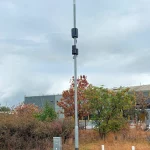Ofcom UK Makes Changes to Rules for Landline and Mobile Calls

The UK telecoms regulator, Ofcom, has today published a final statement on their latest Wholesale Voice Markets Review 2021–26 (WVMR), which among other things has set some new caps on call termination charges and deregulated other areas.
Admittedly, Ofcom’s approach to regulation of the voice calls market is distinctly less interesting than the outcome of their recent full fibre focused Wholesale Fixed Telecoms Market Review 2021-26 (here). Nevertheless, in 2019 some 200 billion minutes of calls were still made by customers using a landline (often taken as part of a broadband bundle from your ISP) or mobile service.
Likewise, the continued reliance on mobile calls in particular came to the fore at the start of the spring lockdown announced in March 2020, which saw a 10%-45% increase of mobile voice traffic across operators, compared with the period before the lockdown.
Advertisement
However, there’s no escaping that landline phones, in particular, have gradually given way over the past decade to greater use of cheaper mobile calling services, as well as internet messaging or VoIP based solutions. Over the next few years even the traditional landline telephone service will become entirely IP based (completion by December 2025).
Suffice to say that Ofcom’s changes are designed to reflect the above shifts, but they also recognise that people do still make calls and some changes in regulation are needed. The changes below will thus run from April 2021 to March 2026.
To deregulate the wholesale market for landline call origination.
We have removed the current regulation on BT’s Wholesale Call Origination (WCO) service, which enables people to make outbound calls over a landline. The large majority of landline calls made by providers other than BT already use alternatives to BT’s WCO service. As providers move to more modern methods of supplying landlines, they will no longer need to purchase this service from BT. We expect the transition to more modern methods to take place by the end of 2025 and BT has offered voluntary commitments to maintain its WCO service in line with current regulation during that transition period.
To continue to set caps on the charges for terminating landline and mobile calls in the UK.
Call termination is a wholesale service provided by a phone company to connect incoming calls to a customer on its network. Without charge caps, providers would be able to charge high rates for termination. This is because the originating provider has no other choice than to buy the termination service from the terminating provider. The caps apply to termination charges for landline and mobile calls that are made within the UK. The cap for mobile call termination has been reduced to reflect the lower costs faced by mobile operators. In the first year of the market review period, 2021/22, the cap will be 0.379 pence per minute. For landline call termination, we have maintained the price cap its current level of 0.0292 pence per minute in real terms.
For calls originating from abroad, to require UK providers to charge no more than the equivalent rates charged by their international counterparties where those are higher than the UK regulated cap.
This is a change from the current situation, where the same termination price caps apply to all calls regardless of their origin. We have decided to allow UK communications providers to set termination charges for incoming calls from abroad that can be higher than the caps we are setting for domestic calls, but only where the UK communications provider faces a high termination charge from its international counterparty when its customers make calls terminating on the counterparty’s network overseas, and only up to the level of the reciprocal termination charge. We have made this change because this is the approach that is most likely to deliver low termination rates in the UK and for calls terminating abroad; which is the outcome of most benefit to consumers.
To move the focus of regulation from traditional to more modern interconnection.
Over the period of the market review, we expect IP interconnection to become the main method of interconnection as industry moves away from the traditional landline telephone network. We have decided to regulate IP interconnection so that BT has to interconnect on fair, reasonable and non-discriminatory terms, including prices. We also require BT to publish a timetable for the migration from traditional interconnection to IP interconnection.
In order to encourage the move to modern interconnection, BT must offer interconnection with its IP network for termination of calls on BT’s network at the regulated termination rate from April 2025.
This is to provide certainty to telecoms providers that by April 2025, they will be able to access the regulated termination rate for calls to numbers allocated to via IP interconnection, including for those numbers that may still be held on BT’s traditional network. As a consequence, from April 2025, BT will no longer be able to charge for certain additional services for IP interconnection, on top of the regulated termination rate.
To continue to set a cap on termination rates for calls to 070 numbers equivalent to the mobile termination rate cap.
This is to minimise the risk of high prices, bill shock and scams resulting from high termination rates.
Not to renew the charge control for conveyance of calls to ported mobile numbers (Donor Conveyance Charges (DCC)).
However, we will retain the requirement that these charges are set at cost, which should mean that these charges will not increase above their current level.
To incentivise the use of common technical standards for IP interconnection.
We set out guidance on the interpretation of the network access obligation – stating that the provision of IP interconnection in accordance with the relevant IP interconnection standards is likely to be consistent with those obligations. In view of this, other standards can be used by providers, but it is likely we would consider it reasonable that they bear the additional costs involved.
All of Ofcom’s decisions come into force on 1st April 2021, except their changes to the caps for fixed, mobile and 070 termination charges, which will take effect from 1st June 2021. “This is to allow providers time to notify new termination rates where necessary to comply with the new rules,” said the regulator.
In addition, BT will have six months to implement their new transparency requirements for IP interconnection to publish (1) a reference offer setting our fair and reasonable terms for IP interconnection, and (2) information on the quality of service of its provision of interconnect circuits.
Advertisement
Mark is a professional technology writer, IT consultant and computer engineer from Dorset (England), he also founded ISPreview in 1999 and enjoys analysing the latest telecoms and broadband developments. Find me on X (Twitter), Mastodon, Facebook, BlueSky, Threads.net and Linkedin.
« Former KCOM Boss Appointed CEO of Broadband ISP Quickline





















































Still doesn’t make any difference for those who are forced to have it but not using it at all.
I think SoGEA solves this problem? (and longer term FTTP and ISDN switch-off essentially requires landline customers to take an internet connection)
@Ben
Depends how you mean “solves”
The cost of the “broadband” element increases to compensate for the loss of the rental paid. The difference, right now, is negligible.
Might look good for those that oppose paying for “line rental” when they “don’t use it” but in reality, they do, just not for voice calls.
@Name when you say ‘forced’ you may find legal recourse. Speak with the police if you are being controlled against your free will. However, if you mean you have to pay for a medium to carry broadband to your house, over which calls or BB signals can be sent, you have to remember a physical medium needs to be maintained. Not using calls does not make the physical medium cheaper.
It would not be the case that British Gas stop charging the daily standing charge because I only use gas for heating and am ‘forced’ to accept the ‘cook-ability of gas’.
@Ben – yup – I have a SoGEA connection and the overall voice & data service is less than previous (by the cost of the previous line rental)
Interesting – does this mean that the actual cost of making a call to a mobile is less than 0.1p more than the cost of making a call to a landline? Or are there additional costs involved when calling a mobile which do not apply when calling a landline?
I am using FTTP so in theory I don’t need my phone as that is using the copper network. I’m paying for the FTTP on top of the telephone line, which I don’t use
Philip – if your FTTP is an Openreach-provided service you should be able to find a provider who will supply fttp broadband without any sort of voice service. Whether they would charge you less than your current bundled deal would remain to be seen (since you might find the ‘race to the bottom’ players aren’t so interested in playing in the FTTP market, at least for now – possibly because their core networks would likely struggle to cope with the massive increase in bandwidth requirements – but don’t quote me on that).
Hope that helps? Shout if you need any pointing?